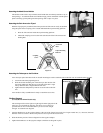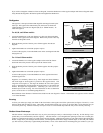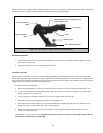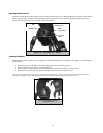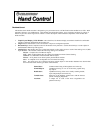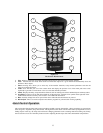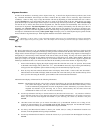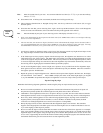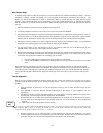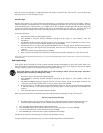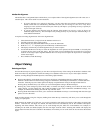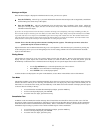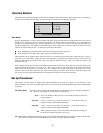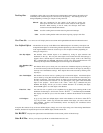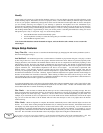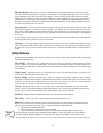
16
A
A
u
u
t
t
o
o
T
T
w
w
o
o
-
-
S
S
t
t
a
a
r
r
A
A
l
l
i
i
g
g
n
n
As with Sky Align, Auto Two-Star Align requires you to enter all the necessary time/site information as before. Once this
information is entered, NexStar will prompt you to select and point the telescope at one known star in the sky. The
NexStar now has all the information it needs to automatically choose a second star that will assure the best possible
alignment. Once selected the telescope will automatically slew to that second alignment star to complete the alignment.
With the NexStar set up outside with all accessories attached and the tripod leveled, follow the steps below to align the
telescope:
1. Once the NexStar is powered on , Press ENTER to begin alignment.
2. Use the Up and Down scroll keys (10) to select Auto Two-Star Align and press ENTER.
3. The hand control will display the last time and location information that was entered into the hand control. Use the Up
and Down buttons to scroll through the information. Press ENTER to accept the current information or press UNDO to
manually edit the information (see Sky Align section for detailed instruction on entering time/site information).
4. The display will now prompt you to select a bright star from the displayed list on the hand control. Use Up and Down
buttons (6 and 9 on the keypad) to scroll to the desired star and then press ENTER.
5. Use the arrow buttons to slew the telescope to the star you selected. Center the star in the finderscope and press
ENTER. Finally, center the star in the eyepiece and press ALIGN.
6. Based on this information, the NexStar will automatically display the most suitable second alignment star that is above
the horizon. Press ENTER to automatically slew the telescope to the displayed star. If for some reason you do not wish
to select this star (perhaps it is behind a tree or building), you can either:
• Press the UNDO button to display the next most suitable star for alignment.
• Use the UP and DOWN scroll buttons to manually select any star you wish from the entire list of available
stars.
Once finished slewing, the display will ask you to use the arrow buttons to align the selected star with the red dot of the
finderscope. Once centered in the finder, press ENTER. The display will then instruct you to center the star in the field of
view of the eyepiece. When the star is centered, press ALIGN to accept this star as your second alignment star. When the
telescope has been aligned to both stars the display will read Align Success, and you are now ready to find your first
object.
T
T
w
w
o
o
S
S
t
t
a
a
r
r
A
A
l
l
i
i
g
g
n
n
m
m
e
e
n
n
t
t
With the two-star alignment method, the NexStar requires the user to know the positions of two bright stars in order to
accurately align the telescope with the sky and begin finding objects. Here is an overview of the two-star alignment
procedure:
1. Once the NexStar is powered on, use the Up and Down scroll keys (10) to select Two-Star Align, and press
ENTER.
2. Press ENTER to accept the time/site information displayed on the display, or press UNDO to enter new
information.
3. The SELECT STAR 1 message will appear in the top row of the display. Use the Up and Down scroll keys (10) to
select the star you wish to use for the first alignment star. Press ENTER.
4. NexStar then asks you to center in the eyepiece the alignment star you selected. Use the direction arrow buttons to
slew the telescope to the alignment star and carefully center the star in the finderscope. Press ENTER when
centered.
5. Then, center the star in the eyepiece and press ALIGN.
In order to accurately center the alignment star in the eyepiece, you may wish to decrease the slew rate of the motors for
fine centering. This is done by pressing the RATE key (11) on the hand controller then selecting the number that
corresponds to the speed you desire. (9 = fastest , 1 = slowest).
6. NexStar will then ask you to select and center a second alignment star and press the ALIGN key. It is best to
choose alignment stars that are a good distance away from one another. Stars that are at least 40º to 60º apart from
each other will give you a more accurate alignment than stars that are close to each other.
Helpful
Hint



